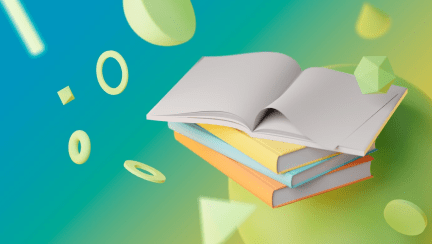Writing Under Pressure: Cognitive Tricks to Stay Original
Why Pressure Undermines Original Thinking
We’ve all been there — the deadline is hours away, the cursor blinks, and your brain feels empty. In 2025, writing under pressure has become part of everyday life for students, journalists, and professionals. But when stress peaks, originality is often the first thing to fade.
A 2024 EDUCAUSE analysis revealed that over 60% of university students used AI writing tools to “speed up” assignments during stressful periods — often unaware that the results could border on plagiarism.
Stress changes how the brain works. When cortisol levels rise, the mind shifts from deep analytical thinking to surface-level pattern replication. In short, pressure makes us imitate — not innovate. This phenomenon, called cognitive convergence, explains why even honest writers can unintentionally echo the ideas or phrases they’ve recently read.
Quick Stats (OECD Skills Report, 2024):
- 73% of students feel creatively blocked under tight deadlines
- 41% admit paraphrasing too closely when stressed
- 28% later realize their writing mirrors source material
When “Unintentional Plagiarism” Isn’t About Dishonesty
Not all plagiarism stems from bad intentions. A 2023 SAGE Open study found that cognitive overload — not moral failure — is often behind patchwriting and overreliance on references. Students juggling multiple tabs, notes, and drafts can easily blur the line between synthesis and repetition.
This doesn’t excuse plagiarism, but it reframes it. Ethical lapses can emerge from exhaustion as much as deception. Recognizing this, universities like Stanford have updated their integrity guidelines to highlight the role of mental wellness, time management, and reflective learning in sustaining originality.
What Science Says: Stress, Memory, and Creative Flow
Recent neuroscience research sheds light on why stress kills creativity. A 2024 Trends in Cognitive Sciences article by MIT researchers found that high-pressure conditions reduce activity in the brain’s default mode network — the area responsible for associative thinking and idea generation.
When that system shuts down, we stop creating new links between ideas and start recycling what we already know. The brain enters cognitive conservation mode, prioritizing efficiency over originality. Ironically, the harder we try to produce unique work under pressure, the more likely we are to repeat familiar patterns.
Case Insight: The “Midnight Essay” Effect
Meet Maya, a college sophomore writing her philosophy paper the night before it’s due. She’s read three academic papers and several blogs on existentialism. By 2 a.m., exhausted and anxious, she writes sentences that “sound right.” When her professor runs a plagiarism check, several passages come back as too similar to her sources — not copied, but uncomfortably close.
Maya didn’t cheat. Her brain, fatigued and overloaded, simply reused phrasing structures it had recently absorbed — a process researchers at Carnegie Mellon University describe as memory contamination. When we don’t take mental breaks, exposure to dense material starts to shape how we express ourselves.
How to Stay Original Under Pressure: 3 Cognitive Tricks
Fortunately, research-backed methods can help writers regain creativity and reduce unintentional imitation — even during high-stress deadlines.
1. Switch Contexts Every 25 Minutes
Try the Pomodoro reflection method: write for 25 minutes, then take a short break. Stand up, switch tasks, or move to another section of your text. According to a Brookings Institution (2024) study, these mini “resets” restore creative flexibility and reduce repetition caused by mental fatigue.
2. Write from Memory Before Checking Sources
After reviewing your materials, close all tabs and summarize what you recall — in your own words. This isolates your real understanding from what you’ve merely memorized. Research in the Taylor & Francis Journal of Information Education found that this “memory drafting” approach lowers plagiarism risk by up to 47%.
3. Try a “Source-Free Revision” Session
Before submitting, edit your text without looking at your sources. If a sentence feels incomplete or “empty” without a citation, it may be too close to the original phrasing. Rewriting those parts in your own tone strengthens both fluency and ownership of ideas.
For Educators: Addressing Pressure-Driven Plagiarism
Educators play a vital role in reducing systemic pressure that can lead to misconduct. The OECD Education Policy Outlook 2024 recommends three key interventions to combat what it calls ethical fatigue:
- Stage assignments into smaller parts: proposal → draft → reflection → final.
- Offer micro-workshops on stress management and paraphrasing literacy.
- Promote transparent AI use through reflection logs or citation statements.
Such strategies help students focus on learning — not just surviving deadlines — and substantially reduce stress-related plagiarism.
Pressure Doesn’t Excuse, But It Explains
Pressure may explain why originality falters, but awareness helps prevent it. Writing under stress is universal, yet understanding the cognitive roots of imitation lets us protect creativity even in difficult moments.
In 2025, academic integrity isn’t only about detection — it’s about designing systems that nurture originality when time and focus are most fragile.


Writing Under Pressure: Cognitive Tricks to Stay Original
Why Pressure Undermines Original Thinking We’ve all been there — the deadline is hours away, the cursor blinks, and your […]

Building Academic Integrity Habits from the First Semester
Practical Guide for First-Year Students in Higher Education Why Integrity Must Start Early Starting university is not only an academic […]

Micro-Cheating in Academia: Definition, Examples & Impact
Academic integrity conversations in 2024–2025 are no longer limited to plagiarism or overt exam cheating. A subtler form of dishonesty […]










